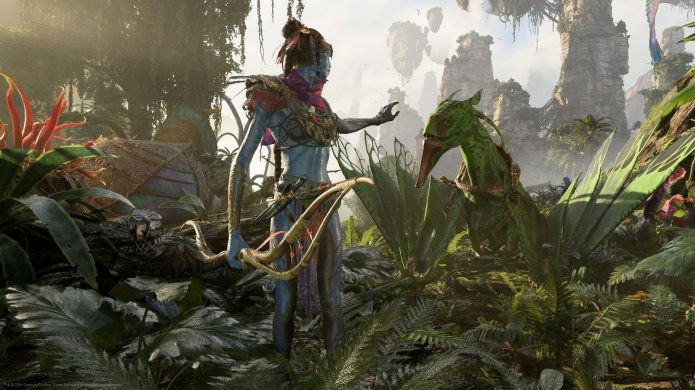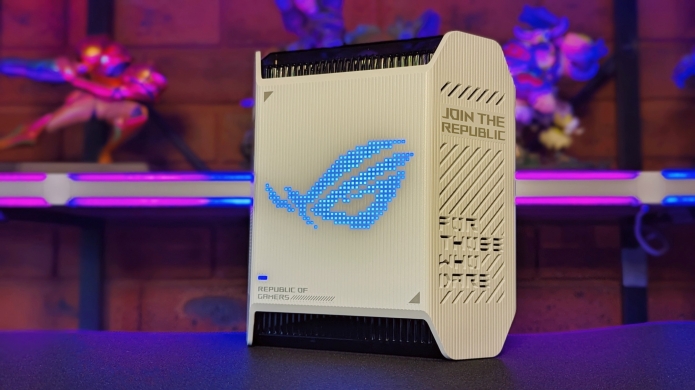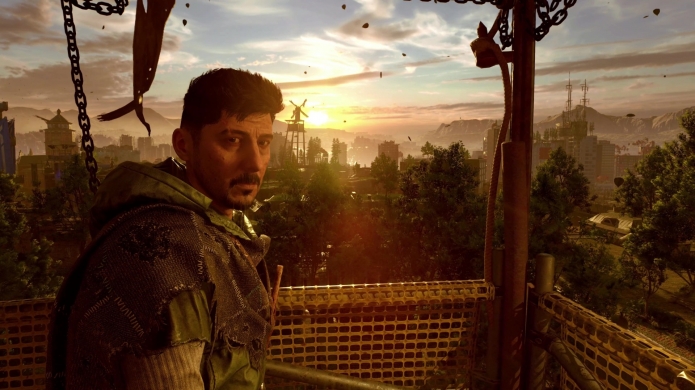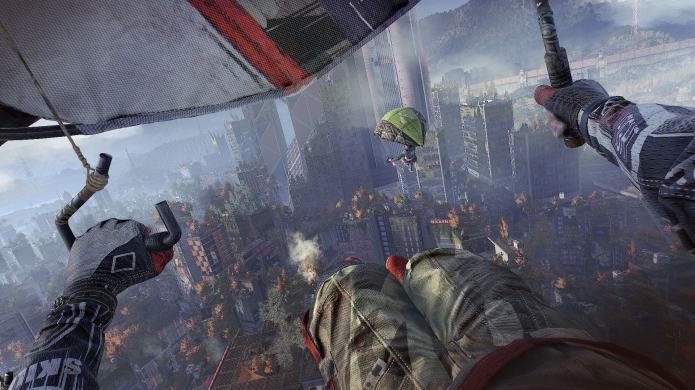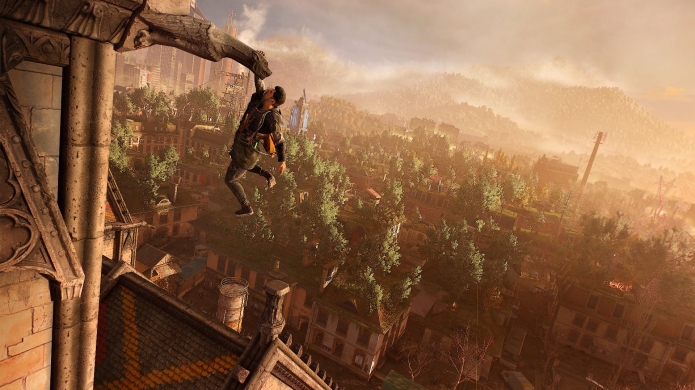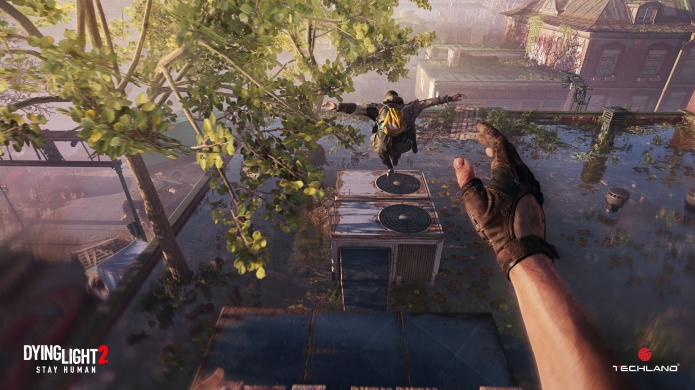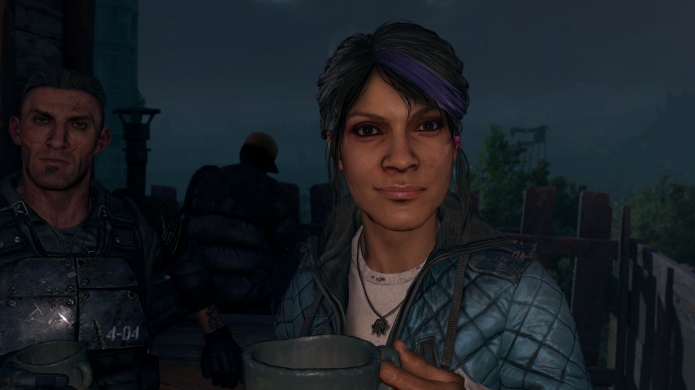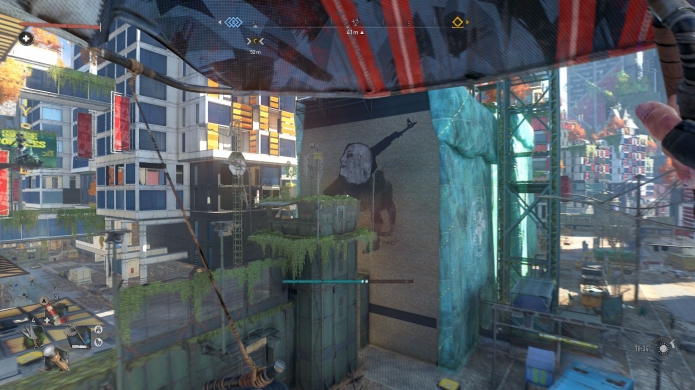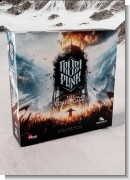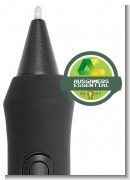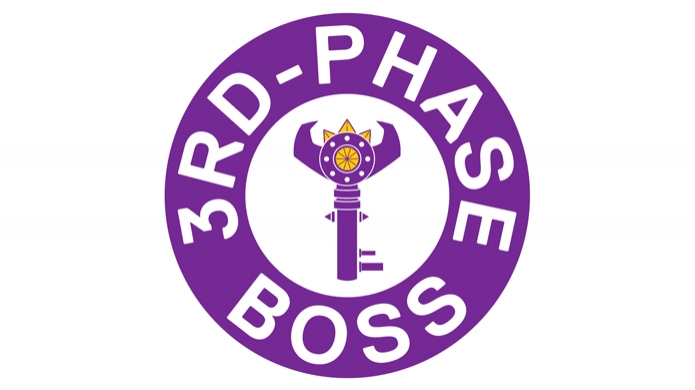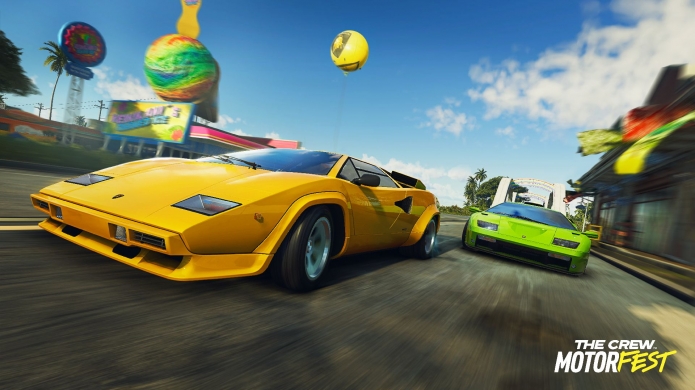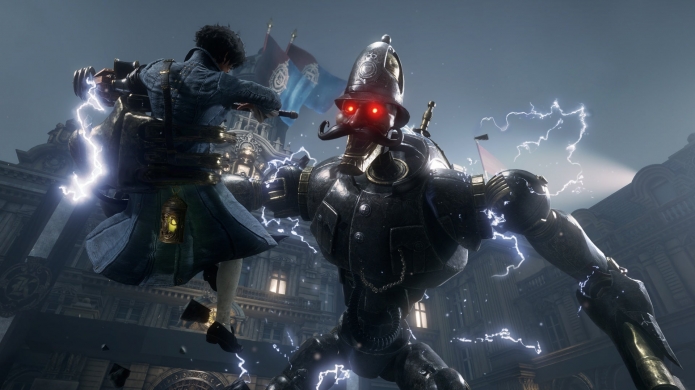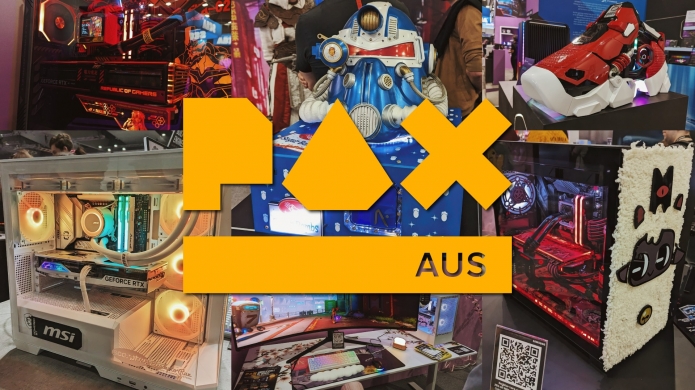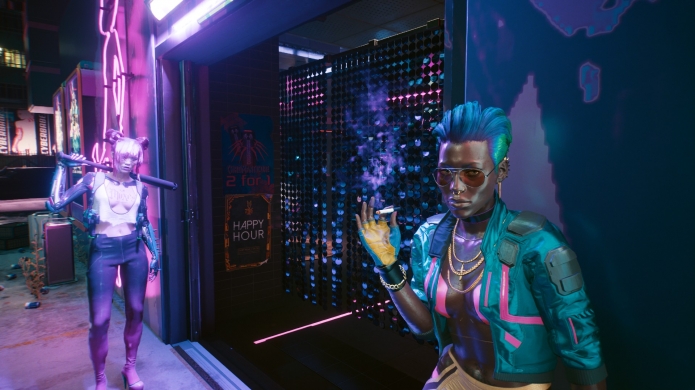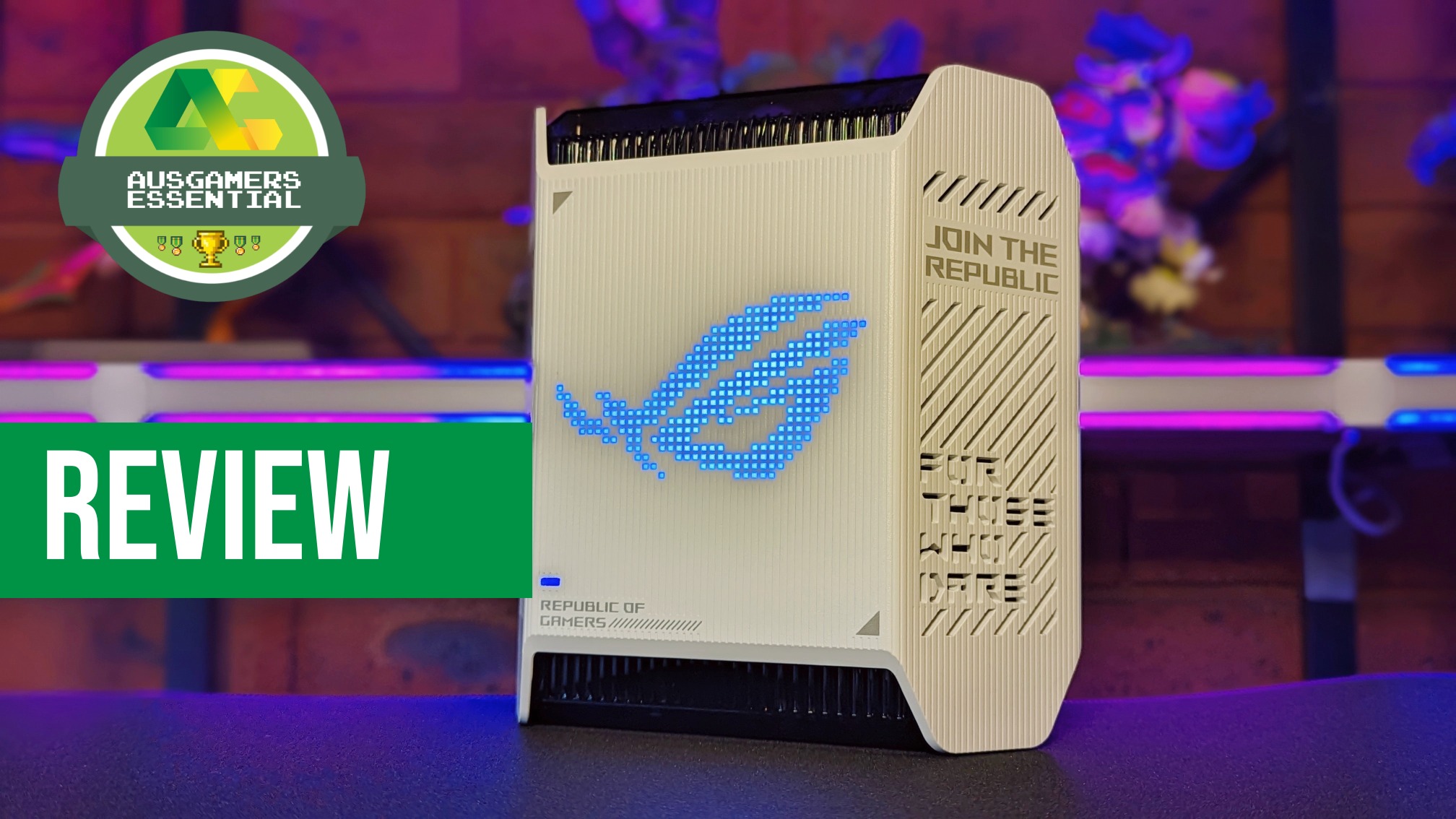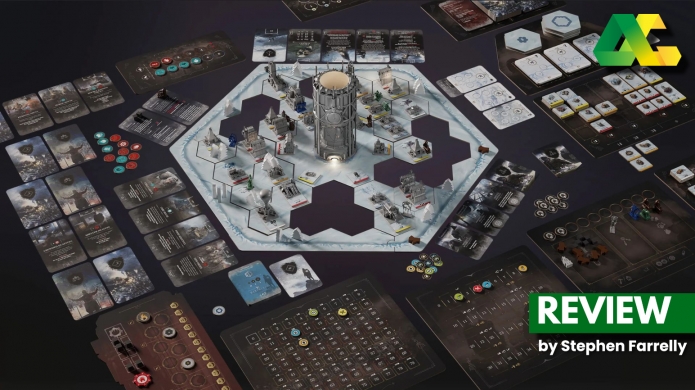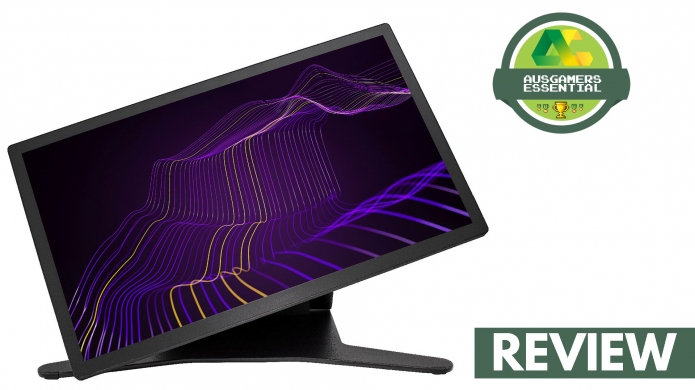Inside Dying Light 2 - Our Massive Interview with Techland
Post by KostaAndreadis @ 03:10pm 08/04/22 | Comments
We sit down with Tymon Smektała, Dying Light 2 Stay Human Lead Game Designer, to discuss the past, present, and future of the game, and more.
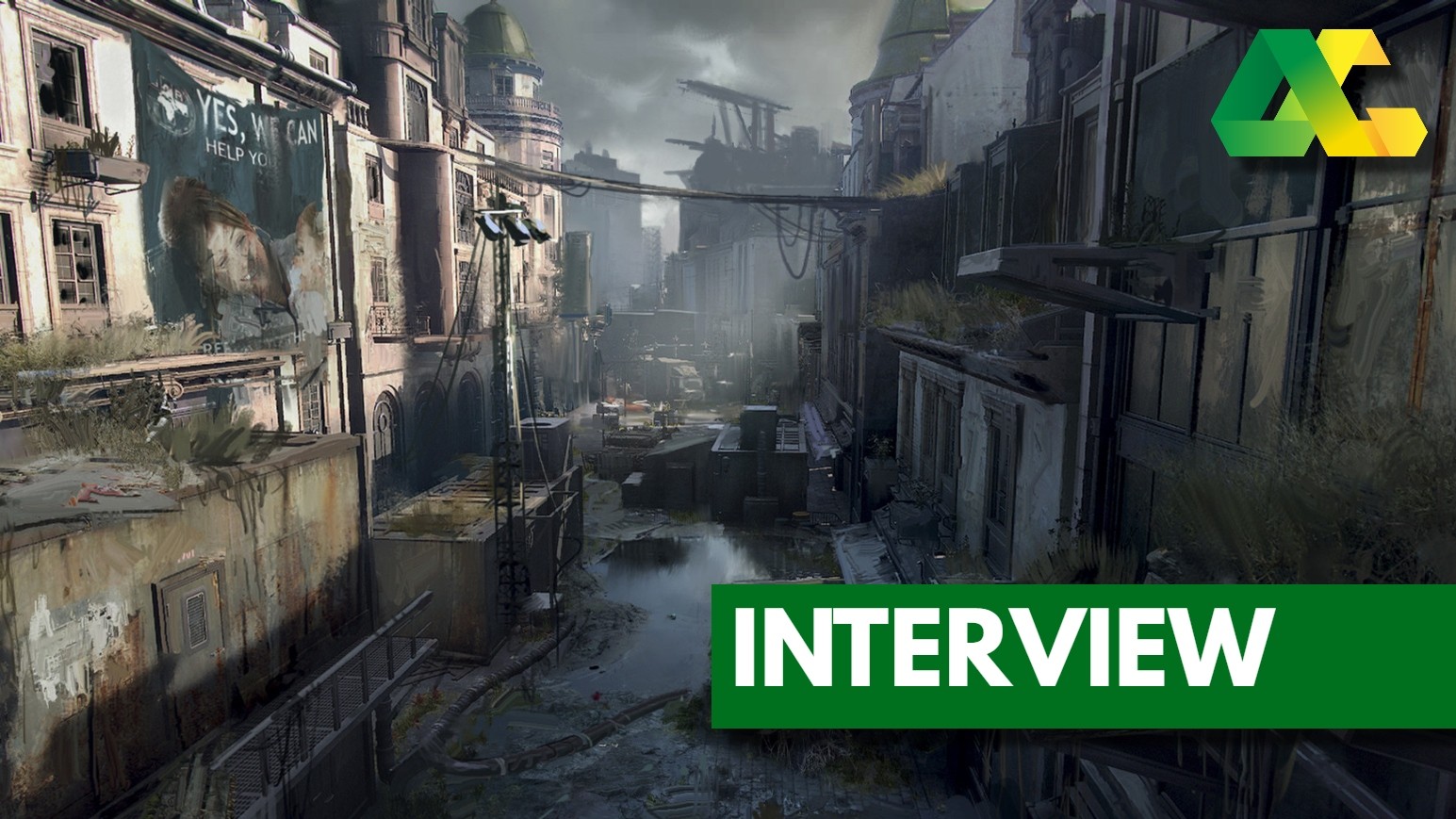
Developer Techland currently has a five-year plan to support Dying Light 2 Stay Human with updates and new content. This is something that won’t be a surprise for fans of the original Dying Light, a game which has been receiving regular updates for years, including a recent 4K console patch for PS5 and Xbox Series X.
The team at Techland has a vision of what Dying Light 2 will look like in 2027, but it’s a vision that has room to shift and change and adapt to fit into what players want to see from the experience, the world, its characters, and the various ways you can explore and engage with its post-apocalyptic city sandbox. In terms of things to do, and how you'll be able to change and shape the overall narrative.
As an independent studio, the release of Dying Light 2 has also seen the development team join the ranks of major AAA houses thanks to Dying Light 2's open-world RPG ambition. In our extended chat with Tymon Smektała, Dying Light 2 Stay Human Lead Game Designer, we discussed its development, the challenges the team faced along the way, what’s in store for the future, and more.
An open and candid interview that also touched on what’s next for Techland (a very cool sounding fantasy open-world RPG). Plus, the possibility of Dying Light 2 adding vehicles.
On creating a AAA style ambitious open-world RPG experience whilst remaining independent
Tymon Smektała: “Our CEO [Paweł Marchewka] creates the framework for us to actually have that kind of creativity. We don't have to report to investors, we’re not on the stock exchange, we’re not a first party studio. So whatever we do will not make or break a new console launch. We are free to make our own mistakes. I think it comes down to the personality of our CEO too, who is a creative person, who's constantly looking for new ideas and the next shiny thing to focus on.”
"This is a part of our pre-production methodology. We start with defining why this game will be unique. What will make this game different from anything else out there. We don't start with looking at ideas from other games that we can copy and translate to our own game."
“He pushes us to keep that creative spirit within the company. He creates a space, and the financial resources for us to actually be able to do that. When we start a new project, we always start with ‘what's going to be unique about this?’. This is a part of our pre-production methodology. We start with defining why this game will be unique. What will make this game different from anything else out there. We don't start with looking at ideas from other games that we can copy and translate to our own game. We start with defining where we want to be brave, where we can take the risks that we want to take. To create something new.”
On what it means to have worked on a title like Dying Light 2 for as long as the studio has…
Tymon: “I think it [has been] a combination of factors. Of course it was the pandemic which, I think, made it hard for any developer out there to actually be able to release a game within that time period. But I don't want to say that was the reason [for the delays] because I think the main reason was that we just felt we weren't ready.

Related: Dying Light 2’s Ray-Tracing is a Game Changer on PC
"Another factor that also contributed to that was the nonlinear aspect of the game. I think this is something that kind of surprised us, like, we were used to testing and polishing a game which is way more scripted (Dying Light), even if it was an open-world game, it was more linear; it was just one version of the game that you had to test. With Dying Light 2: Stay Human, because you can change the story and have different variations of the story; because you can change the world and have different variations of the world, we realised that to properly test the game and assure it's of the quality that we want, we really needed to spend more time on it."
"So looking at the technical aspect of it; our logistics aspects of it, I would say that was definitely the biggest reason it took so long. But on the other hand, we also just felt that the game wasn't ready to be released even before [all of] that. So definitely it's part of the ethos that you mentioned; the liberties that we had to actually [take] our time because of the [independent] financial situation of the company. We were able to spend more time on the title and push it to the place we wanted it to be before we released it.”
The non-linear nature of Dying Light 2’s story and how that will factor into post-launch support and expanding the world
Tymon: “I think it will be a little bit easier for us right now, because the vision of the world has been stabilised and it's easier to put additional elements into it at this point. Another thing that will help us is that some of those updates will simply be cosmetic changes and some of them purely gameplay elements or gameplay content where we don't have to look closely at the choices and consequences and nonlinearity. Having said that, on the other hand all of the big DLC content that we are preparing right now, and we are basically in production for the first one, they take into account part of that nonlinearity.”
"With Dying Light 2: Stay Human, because you can change the story and have different variations of the story; because you can change the world and have different variations of the world, we realised that to properly test the game and assure it's of the quality that we want, we really needed to spend more time on it."
“There will be more choices and consequences too, and it will give us some headaches, but the scope of these DLCs is much smaller than the base games. So, even there I think it will be easier. We’ve also learned a lot when it comes to branching narratives, changing the world, transforming the world. Those were new experiences for us as developers. We had to discover why they were difficult things to do, and what the challenges were. Maybe we discovered that the hard way, but I think the hard work is already behind us. We will use that expertise to make things more seamless and easier for us as developers. And hopefully this will mean that gamers will be able to receive that content quicker.”
How Techland is maintaining the integrity of each player’s decisions and experience with the game, given it’s so dynamic and branching, when it comes to the new, upcoming content.
Tymon: “Okay, so unfortunately this is an area I can't really say too much about because I don't want to spoil things. An official announcement is coming… so I don't want to spoil that. But I think we are using different models. So that will be content [that is] basically its own self-contained story. And the first DLC (and this is something I can share) is more like a [standalone] story that you will be able to start no matter where you are in the main story. And then enjoy it as it is, without really thinking too much about the consequences of your choices in the base game.”
“But we are actually thinking about putting in some small hooks that will reference the events of the main game. But I think this will be very small. This will be us making it a little easier for ourselves for the first DLC, but for the later content, we will definitely be looking at what were player’s choices; what were the decisions that they were making? And we'll try to reference that and make sure that no matter what those choices were, future content will be proof of that. And we'll use that more as an integral part of the experience of some of the future DLCs.”
Techland’s evolution from Dead Island to the original Dying Light and now with Dying Light 2. From action in an open-world to an RPG with choice and consequence, the team's confidence going forward in creating games with huge scopes.
Tymon: “We are definitely in a better place, but there's still a lot for us to learn. We are not a studio like BioWare which has 30 years of making RPGs. But, again, we are in a much better place than we were after Dying Light. And we are in a much better place than we were after Dead Island. You know, a lot of people that worked on Dead Island, they formed the core team of Dying Light. And then they moved to the core team of Dying Light 2. So there's definitely that heritage, years of expertise already with the core team of our games.”
"We still look up to them, and hopefully our next project, whatever we do next will put us in the golden circle of game developers."
“It’s not just me just saying this, we really feel that we have a lot to learn and we try to keep our heads low and not get too excited [with success]. There are masters out there who have been doing similar things for many, many years. We still look up to them, and hopefully our next project, whatever we do next will put us in the golden circle of game developers. There's this huge motivation for every member of the team to learn new things and develop their professional skills. I hope our next project will show that progress and show that growth as developers.”
“At Techland, we have sort of revealed or announced that there's a project being worked on; a AAA open world fantasy game. Which will definitely use all of the experiences from the “zombie games”, Dead Island, Dying Light, not because of zombies, but because of all of the RPG systems, narrative solutions we have created. The new project is really an amazing game. It tries to do a lot of things in a very unique way. I'm sure we will learn a lot as a company, as an organisation from it. So if the next one is Dying Light 3, hypothetically speaking, it'll definitely benefit.”
On the tech driving the next generation of the studio’s games and storytelling, given how much had been poured into the current engine.
Tymon: “I'm not actually the best person to answer this because I'm not a tech person. Whatever the engineers tell me, I treat as absolute proof. But looking at the engine and how it's used in the other project, I see that it is a constant evolution; constant growth. [And] I see it making sense. I see it working as, like I was told, that it will make sense because it's an engine that's made to create open-world first-person games and to [also] be flexible and scalable within that genre. And Dying Light 2 is a game built inside urban environments -- big cities, big skyscrapers…
"[But the] next game is a fantasy project. So if you can imagine, it's more like planes, mountains, whatever… but we’re able to use the same tools and the same methods of generating that environment and other, different environments. So definitely, [the engine] is flexible and scalable. So it seems it was a good decision and it makes sense (to continue with this engine). But as I said -- I'm not a tech person. I'm intersecting with tech only when they tell me I can’t have 200 enemies on screen and I say “why?!” and then they go back and they may actually make it happen."
"That's the magic that they do. And, actually, I think our engineers are some of the best in the business. This is really something that I highly appreciate when working on a project -- like, I see it looking good, then I see it looking better. And then in the last few months before the game is released, it suddenly gets, like, this huge leap of graphical quality. And again, I don't know how that happens, but it happens, because of how smart those guys are. So I always use any opportunity to give kudos to our engineers and our tech guys, because they're really smart.”
On the five year plan, the immediate roadmap, and responding to player feedback
Tymon: “We announced five years because we have plans for five years. As you can imagine, how precise those plans are and how detailed they are depends on if we are talking about the next year, or what will happen in the fifth year. The first two years are quite detailed, the first year is basically all planned out at this point. The second year too, but there's still some space. The fifth year is broader, but we have a clear idea of where we want to take the game. We have Dying Light 2 Stay Human in 2027 envisioned already.”
"We announced five years because we have plans for five years. As you can imagine, how precise those plans are and how detailed they are depends on if we are talking about the next year, or what will happen in the fifth year."
“We are very open about it too, and not shy. A part of our methodology is to listen very closely to what players have to say. Even in the plans that I mentioned, we still have milestone checks and key timeframes where we will look at the plans to tweak them and change them if a need arises. Plans for the first year, and maybe the second year as well too, experiment with different themes. More linear, narrative content, gameplay content, cosmetic stuff, things based on challenging players, community events. Very different things mixed together and put on a timeframe. We did that on purpose because we want to listen to what players have to say; what works for them, what doesn't work for them. What kind of content do they prefer?”
“I think we have also proven that we are listening to the community, even with the most recent patch. It's not just a patch that addresses some of the issues the game might have, issues that we may have found, but we are also changing some things based on community requests. One thing that surprised us was that a lot of people were requesting more brutality, more gore in the game, and we delivered that with the patch.”
“Also, we haven't announced the full plan for the first year yet. We have announced something, but that was a high level roadmap that doesn't include elements that we have already planned out. And some of that content is directly based on player requests. If you look at requests right now, it's New Game+, higher difficulty modes, a photo mode. Those are the things that you can expect to see in the near future. And that's all I can say without spoiling or revealing too much. But, player feedback is a very important tool for us. We have very direct contact with the community, and that’s something we’ve built on purpose. We really try to activate our community and create channels for them, where they can express their feedback and their opinion and their requests. We don't get angry if they express those requests in, well, not the most polite manner. We try to get to the essence of what's requested and measure if it makes sense and if we see a place for it in the bigger scheme of things we’re working on.”
Open-world games in an urban environment and the design of interiors in massive play-spaces. On Dying Light 2’s buildings, verticality, and the process of making them feel like meaningful places to explore.
Tymon: “So definitely that was one of the challenges that we faced. And there were different periods of us approaching this over the course of the whole project, because from the start we understood that the interiors are an integral part of the experience and that they needed to be there to give players a space for exploration and discovery. We also knew how difficult it [would be] to actually create those spaces; make them varied, make them… uh, different to one another. And to make them work on last gen and current gen. So it was constantly a back and forth [process].”
"We are also changing some things based on community requests. One thing that surprised us was that a lot of people were requesting more brutality, more gore in the game, and we delivered that with the patch."
“We also realised when we started, at the beginning of the project… well, we didn't really think much about optimisation, and we were free to do whatever. And at some point we had basically all of the interiors open for the player. We have a system which kind of generates them semi randomly; semi dynamically. And we use that system to have all of the interiors open, but then we realised that it doesn't translate to a better player experience. It translated into a space where [it was] getting very repetitive and it was difficult for us as developers to populate them with meaningful content, as you said.“
“So it was a matter of our own tastes, but also our own approach to balance and also play testing [to try to see] what was the best balance of open interiors and closed interiors. Definitely I think this is something that is a challenge for us and other developers -- trying to create open-world games in urban environments where you are looking for this density of interiors and the fidelity of what they offer.”
On developing Dying Light 2 for multiple platforms, cross-generation. The challenges the team faced.
Tymon: “I'm not sure how that works for other developers, but how we approach it is that we start working with PC as the leading platform. PCs offer you an almost infinite amount of power so you don't have to think optimisation at the beginning, you can just create whatever you want. At some point though, you have to start thinking about the game releasing on other platforms. So you start simplifying things. I think it speaks to us as experienced developers because we started this process very early, about two years before the release of the game.”
“We had time to actually look at what we could compromise, what we needed to simplify, and what shouldn't be compromised in order to maintain the original vision or the original implementation. This gave us a lot of time to make sure the game was optimised on all platforms. This isn’t something that's my headache, because I'm designing gameplay, but because we started early we had the game running on PS4 and Xbox One. We held a preview event last year before the release of the game and we had the option to play the PS4 version because it was already running well.”
“We spent those extra months before the actual release improving the optimization and making sure the game was using the potential of all platforms. We still feel that there might be room to improve and the work didn't stop when the game was released. In fact, we are still trying to increase the resolution here and there, frame-rate too.”
On Dying Light 2 and the lack of underwater locales and discovery. Even though there’s some great swimming and underwater movement systems
Tymon: “That's a very good question. A little bit surprising, but, ahh… I don't actually think there was any conscious decision to take water out of the equation. Like, for some reason maybe it's… I read somewhere recently that the creative director of Elden Ring, he loves toxic levels. So that's why there is a toxic level in all of his games. So I don't want to say that we dislike water, but we have a [passing] interest in water areas; in water levels, in water gameplay at the studio, and maybe that's the simple reason why it's not [featured] more.”
“But actually we had some, like… we had some ideas for levels like that. And we even had some enemies that made sense in areas like that. We just didn't push in that direction though. Maybe it's time to push in that direction at this point, because as I said, we are listening to our gamers and we have a gamer [AusGamers] who really feels we are lacking in this area. So maybe we will surprise you in the future.”
On the idea that Dying Light and its established lore is now rife for transmedia in a similar fashion to how CD Projekt RED has gone about it with the likes of The Witcher and Cyberpunk, which has an upcoming Netflix series, while comics and more exist outside of the games…
Tymon: “So again, I'm not the best person to answer because I'm a gameplay designer -- this is more like a strategic business decision by our company as a whole, but definitely we are looking at different ideas of what we can do with the franchise, and what we can do with the universe that we have created.”
"PCs offer you an almost infinite amount of power so you don't have to think optimisation at the beginning, you can just create whatever you want. At some point though, you have to start thinking about the game releasing on other platforms. So you start simplifying things. I think it speaks to us as experienced developers because we started this process very early, about two years before the release of the game."
“I think that was the [goal] from the beginning… to make Dying Light something that will be our own. And that will be a foundation for a lot of different endeavours for the company. So I cannot reveal anything at this point. I'm not [even] aware of anything solid that I could say to you right now, so I couldn’t spoil anything, but definitely that's the plan to make sure that Dying Light is not just the first game, the second game, its DLCs, its The Following. I'm sure we will branch out with Dying Light as a franchise, as an IP… in which directions? I don't know, but definitely something will happen.”
On Dying Light 2’s expansions and whether or not we can expect a vehicle-focused update like the original game’s The Following expansion
Tymon: “My lips are sealed. [But] there are a lot of people who also love The Following, so who knows?”


